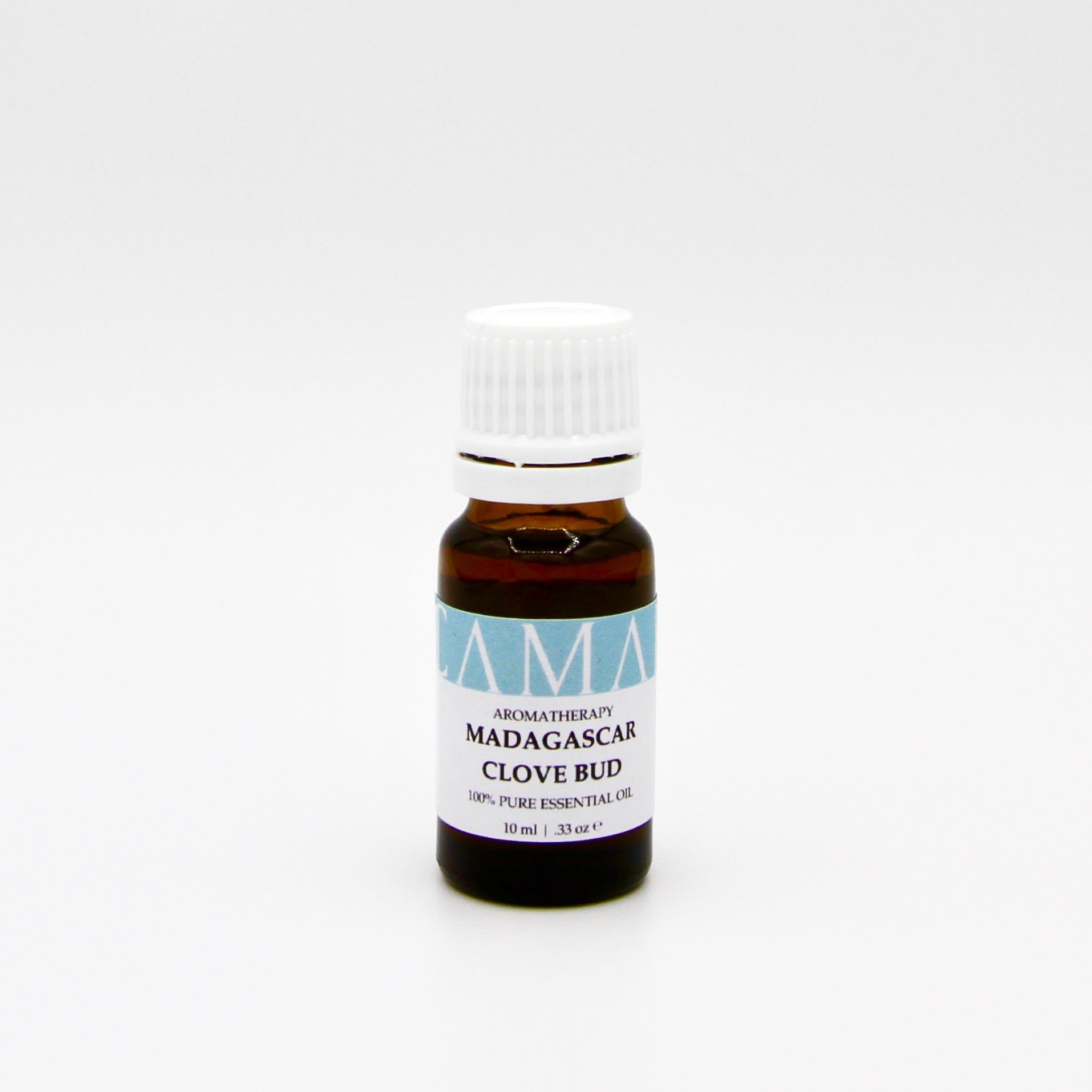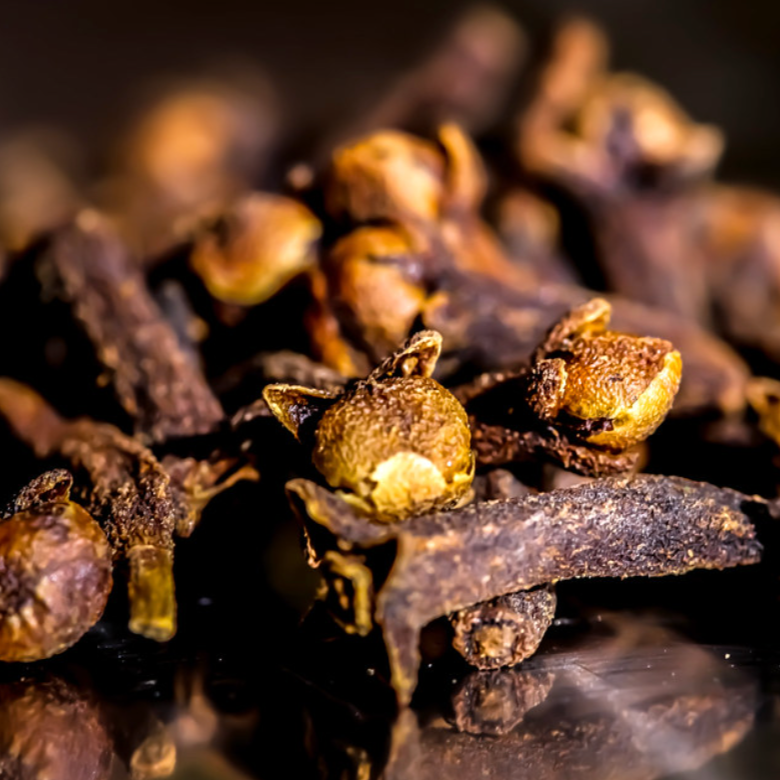

Cloves are the aromatic, dried, fully grown flower buds (unopened) of the clove tree. The tropical growing Clove tree, reaches a height of around 10-15 metres, with leaves that begin as a pale red in colour, then turning to green as they mature. Originating from the Moluccas Islands, Indonesia, the flowering occurs after 7 years (from August/September through to February), and a further 6 months for the buds to mature. The tree can continue to have a productive life for a further 50-70 years, though it flowers best between 15 - 20 years, and producing 3 - 7kg of cloves per tree, per year. The cloves are handpicked when the lower portion of the clove bud is changing colour from green to red. Allowing 2-4 days to dry, and in-turn change colour, then finally graded into 3 colour and appearance groups.
Madagascar is the largest exporter of cloves, although it is the second largest producer after Indonesia. The clove is the second value of exports, behind the vanilla. The whole production is done by small farmers and family, helping 30,000 people. Two products are derived from clove-trees:
•The nail (flower buds harvested before flowering) used as a spice to flavor dishes and sweets.
•The essential oil extracted by distillation from nails, crowns and leaves. It is rich in eugenol, which is used in the cosmetic industry, pharmaceutical (effective antiseptic) and is also used for production of synthetic vanillin.
Known as a domestic spice worldwide. Cloves have been used throughout history from Romans, who used it to keep the plague at bay, to Chinese medicine where cloves were considered highly prized for many uses from cooking, digestion, smoking to dental /oral care and cleaning just to name a few, and predominantly a warming agent.
Either whole or ground from Bud (the closed flower), Stem or Leaf - Clove is desired to have aphrodisiacal nature with stress relieving qualities, yet stimulating, warming and a comforting embracement. Useful for upset stomach, and chesty coughs, helps to ease diarrhoea, vomiting, hernia, gas and nausea. It is also applied to the skin as a counterirritant for pain and for mouth and throat inflammation. such as dental and oral post-application care. Flavourings for foods and beverages, also in toothpaste, soaps, cosmetics, perfumes, and cigarettes (which generally acts like menthol to reduce the harshness of tobacco smoke).
Blends well with : Basil, Bay Leaf, Bergamot, Cananga, Cinnamon, Clary Sage, Geranium, Ginger, Grapefruit, Lavandin, Lavender, Lemon, Orange, Peppermint, Pimento, Rose, Rosemary, Sandalwood and Ylang Ylang.
Choose options


